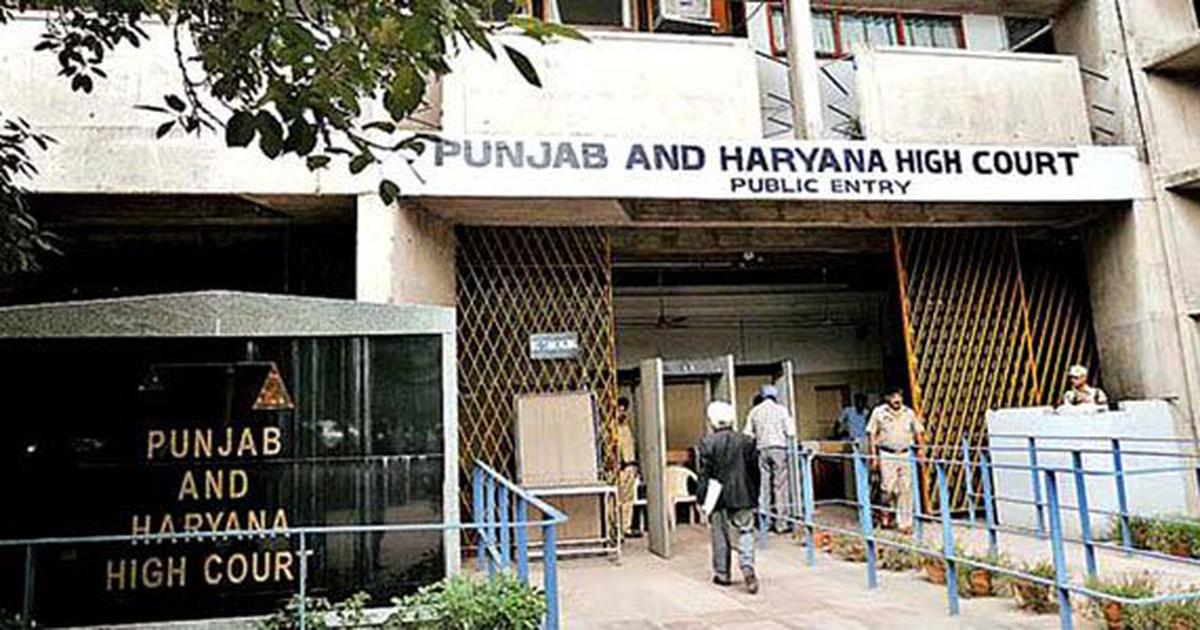Latest News
PUNJAB AND HARYANA HIGH COURT: THE REMEDY OF APPEAL IN CRIMINAL CASES CAN'T BE ALLOWED TO BE DEFEATED ON TECHNICAL PROBLEMS.

Vipin Sharma-convict filed this criminal review against the judgments of 11.01.2017 and 16.01.2019 passed by the appellate court, which permitted, first, the removal of his application for a two-day delay in filing a criminal appeal against the judgment of 08.12.2016 handed down by the court of appeal and, subsequently, the dismissal of the appeal No. CRM/13/2017. The trial of the applicant was launched by FIR No.28 of 28.05.2010, according to Sections 392, 342, 34 IPC and Section 25 Arms Act, Police Station, Behram.
It must always be kept in mind that there is only one remedy of appeal in criminal law, so it is of considerable significance and the remedy cannot be rejected for technical reasons, "the Punjab and Haryana High Court recently noted."
The Constitutional Bench of Justice Manoj Bajaj was considering a criminal revision against the directions issued by the appeal court (Nawanshahr) dated 11.01.2017 and 16.01.2019, wherein, first, the appellant's plea for pardon of two days of delay in filing the criminal appeal against the judgment of his conviction was allowed to be removed and, subsequently, the appeal was also rejected when the petition was lodged.
The petitioner pleaded that the petitioner was put on trial in the above-mentioned FIR with his co-accused and that the same resulted in his conviction and the convicts were sentenced to three years of rigorous imprisonment.
Aggrieved against the above verdict of the sentence, the two convicts collectively lodged an appeal, which was postponed by two days, and a separate plea for pardon was also filed.
Subsequently, only on the argument of his lawyer, the motion for a stay was allowed to be dismissed by the Court below and, at the same time, the notice of appeal qua co-convict was submitted to the State. It was also submitted to the Court that, because his motion for a stay in condonation had been rejected, his petition was eventually also denied by the appellate court.
It was argued that his lawyer (before the Appeals Court below) withdrew the application on the basis that he (accused / appellant) had not approached him. It was argued that the appellant should have been informed by the appellate court before approving the Council's request. It was further found out that the claimant was negatively impacted by the granting of the motion by the appellant's lawyers, as the petition was eventually rejected without the appellant's hearing.
Observations by the Court
The Court has taken into account the fact that, regularly, counsel make prayers before the Courts for the removal of applications or petitions and that such jurisdiction is bestowed upon them by the execution of the power of attorney, but, at the same time, the Court has recognized that the Courts must be vigilant before accepting such a prayer and must analyze the implications of the removal.
In that sense, the Court said,
" In circumstances where the dissent of a movement for withdrawal of a request or an appeal is improper to the litigator by taking off him without a plan of action, that's to propose, instance, the Court must not only demand a clarification from the lawyer who makes the plea but must also give preference to the basis for granting in the order."
In the view of the present case, the Court noted that
" This has harmed the respectful right of the indicted individual and ought to in this way have been informed to the indicted individual by the offers court. Appellate Court, without recognizing the effect of the removal of the motion for the delay, approved the prayer of his lawyers and continued with the appeal of the co-convict."
Further, the Court also opined,
" Simply because the accused had not consulted his lawyer, he would not have given a basis for the prosecutor to extinguish the right of the convict to appeal, as alternatively the board may have had the right to appeal requested for withdrawal of the power of attorney, for no instructions. The prayer made by the counsel for the appellant for withdrawal of application for condonation of delay was against the interest of the appellant, as it attached finality to the judgment of conviction, thereby leaving no remedy for him, but to serve the sentence."
" Separated from the previously mentioned, it is evident from the actualities and circumstances of the case that the challenged orders are in stark difference to the Actus Curiae Neminem Gravabit principle, which not only guarantees fairness and good judgment but also serves as a reference for the administration of justice. It is also clear that the appellate court did not exercise the requisite restraint before approving the motion for dismissal of the application and consequently rejecting the appeal based on delay without understanding that the only legitimate recourse open to the prisoner has been made ineffective. Consequently, the Court had no reservations in holding that the orders of 11.01.2017 and 16.01.2019 suffer from serious illegality and impropriety as a result of serious discrimination on the part of the petitioner (applicant)."
Importantly, the Court observed that it would not refer to common sense that, once the defendant had decided to contest the verdict of guilt, he would abruptly forfeit his constitutional right to accept the sentence recorded by the Court of Justice.
As a result, the motion for revision was allowed and the appealed orders were set aside and it was requested that the appeal submitted by the petitioner be determined on the merits in conformity with the statute after the convict or his pleading was heard.
Document:



































































































